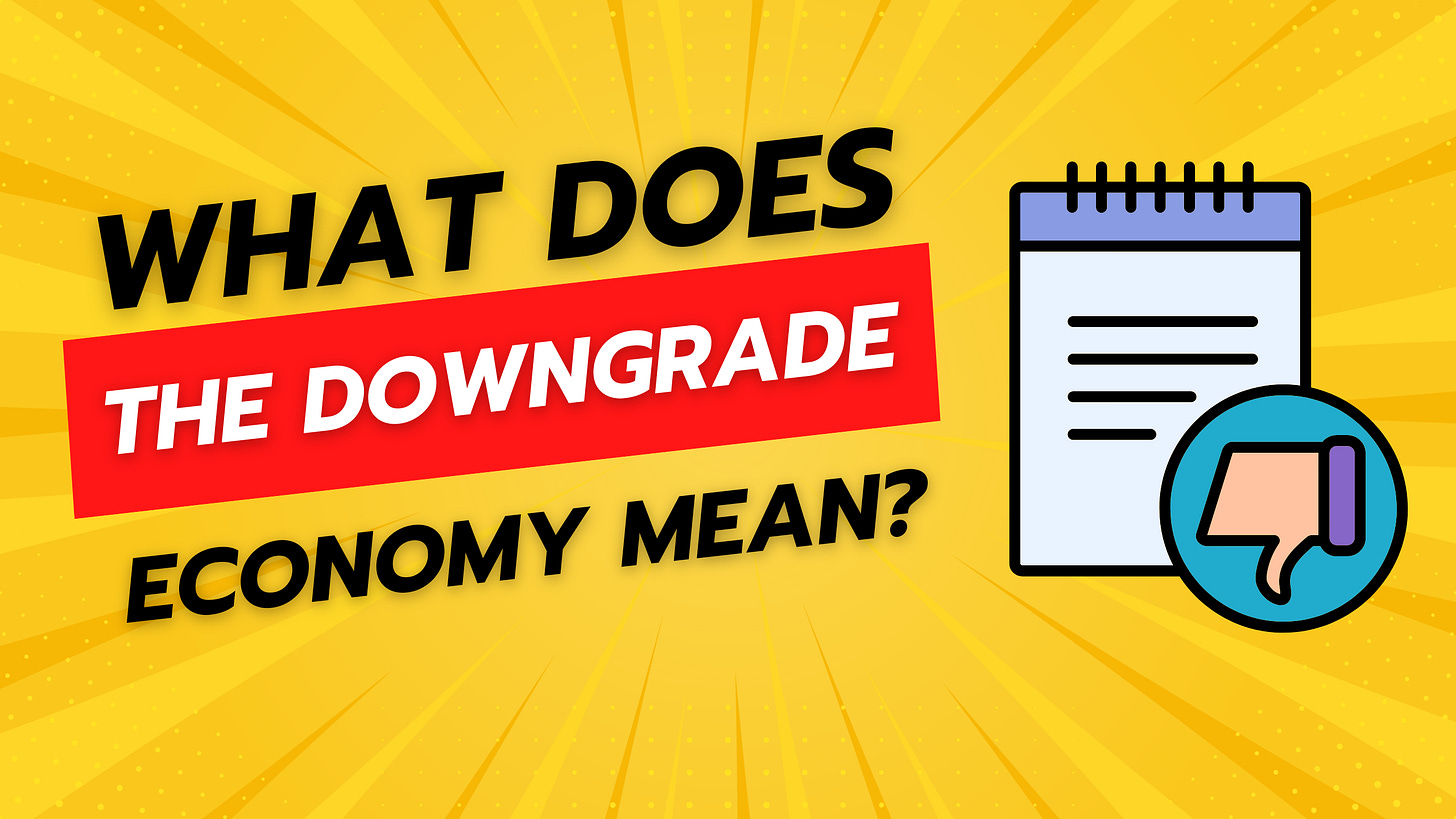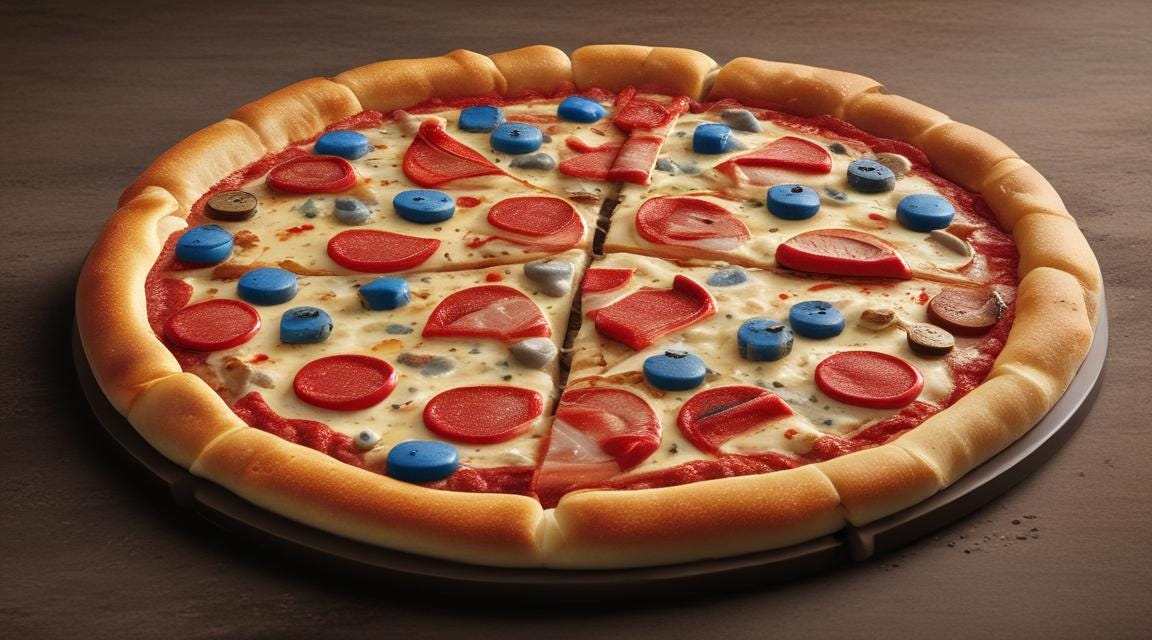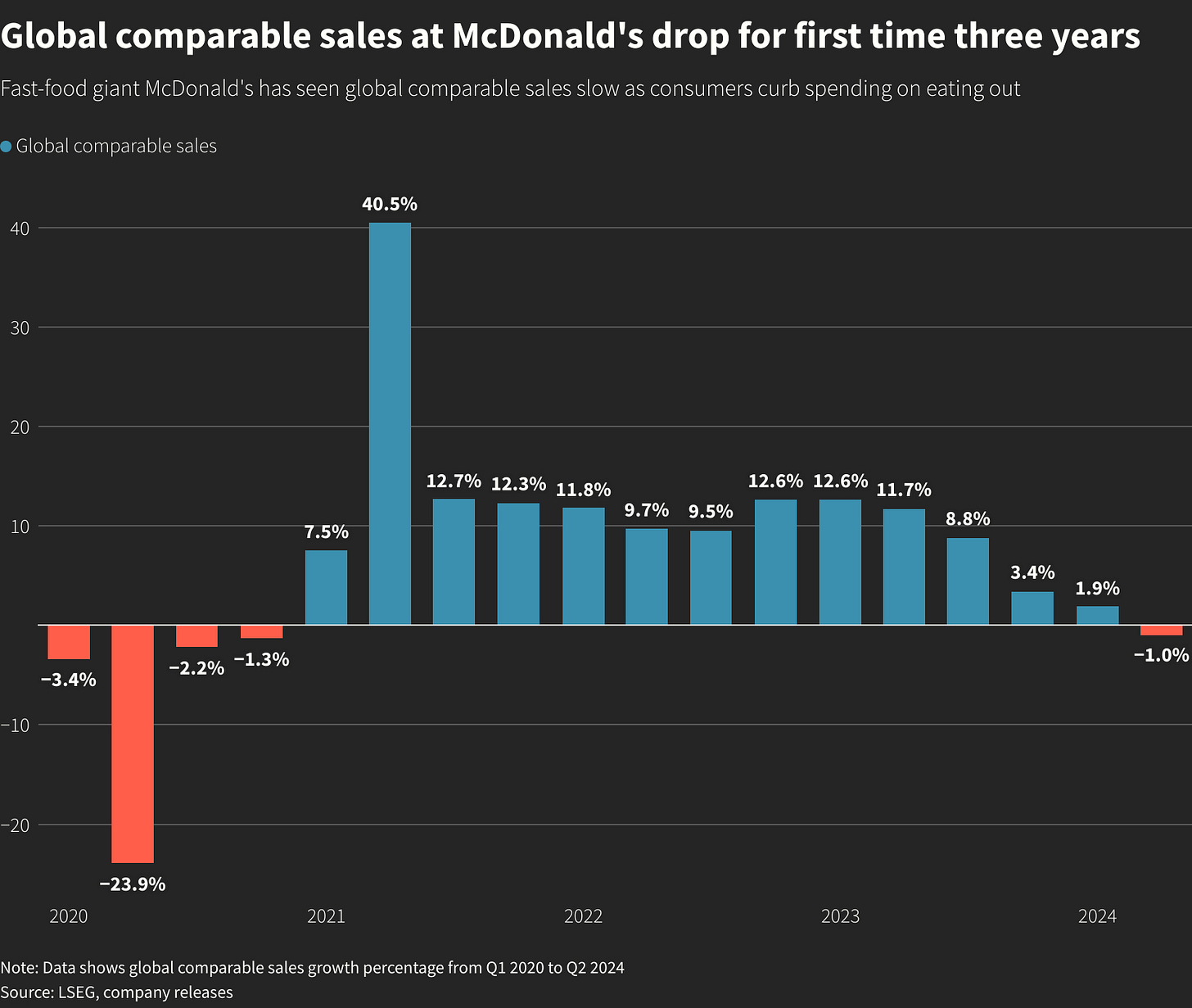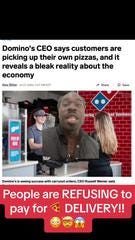Navigating the Downgrade Economy
Marketing accountability is no longer a buzzword; it's a mandate
The era of corporate arrogance, where consumers were mere receptacles for endless streams of products, is irrevocably over. CFOs, those traditional gatekeepers of financial prudence, are now sounding the alarm. In starkly admitting corporate overreach, these financial stewards confess that the market’s once-willing indulgence in superfluous goods has evaporated. No longer can corporations force-feed consumers with products they neither need nor desire, oblivious to the seismic shift in consumer behavior and preference. The age of the discerning, value-conscious consumer has dawned, demanding a radical overhaul of business models and strategies.
Consumers are pushing back on various fronts:
Subscription Fatigue: People are fed up with feeling trapped in subscriptions they don't need. Companies are offering flexible options, prioritizing value, and making cancellations easier.
Fast Fashion's Fallout: Consumers are rejecting unsustainable practices and throwaway culture. They seek durable, ethically sourced clothing, repair options, and sustainable practices.
The Price of Convenience: Single-use plastics are a significant environmental burden. Businesses are investing in reusable packaging, offering plastic-free alternatives, and prioritizing eco-friendly materials.
Upselling Gone Wrong: Aggressive upsells erode trust. Companies build genuine relationships, offer value, and prioritize customer satisfaction.
The Data Dilemma: Privacy concerns are paramount. Companies are becoming transparent about data collection, prioritizing security, and offering clear opt-out options.
Domino's: A Case Study in Changing Habits
Take Domino's, the pizza giant synonymous with delivery. Their iconic slogan, "Get the door, it's Domino's," faces a reality check. With rising living costs, customers increasingly opt to pick up their pizzas, with Domino's carryout business surging by 8% in Q2. This trend reflects a broader movement – consumers prioritize value for money, saving those precious delivery fees and tips for more pizza (or something else entirely).
The Downgrade Economy: What it Means
The Downgrade Economy reflects a new consumer paradigm fueled by:
Rising Living Costs: Inflation is squeezing disposable incomes, forcing a focus on essentials and cost-saving measures.
Shifted Priorities: Convenience is no longer king. Value reigns supreme, with every dollar needing to stretch as far as possible.
What This Means for Businesses
Gone are the days of relying solely on marketing tricks to get customers to spend more. Companies like Domino's are adapting by:
Highlighting Savings: Marketing campaigns now emphasize the cost benefits of carryout over delivery.
Enhancing the Carryout Experience: Streamlining the carryout process ensures speed and efficiency.
Loyalty Programs: Rewarding repeat carryout customers incentivizes this budget-friendly option.
Beyond Domino's: A Broader Trend
As consumers spend less and less, they're not just spending less; companies are sounding the alarm that they're seeing more and more customers downgrade to buying the cheapest options possible, and they're only buying the bare necessities. Let's take a closer look at some examples across various industries.
Whirlpool: When Upgrades Become a Rarity
Whirlpool, the renowned maker of home appliances such as refrigerators and washing machines, is a pivotal example of this trend. According to their CFO, there's a noticeable decline in customers coming in to upgrade their appliances. Instead, most people only come in to replace something broken. This pattern concerns companies that rely on consumers' aspirational purchases to upgrade their lifestyles.
“We continue to see an environment where the discretionary part of our business is under pressure,” Chief Financial Officer Jim Peters said in an interview. “That’s typically when homeowners buy an existing home and they come in and replace the appliances — they make the decision to upgrade.”
The Great Trade-Down
Soaring inflation is forcing consumers to tighten their wallets. As prices climb for everything from groceries to gas, shoppers increasingly turn to discount retailers. This shift in consumer behavior, known as "trade-down," benefits stores like Dollar General, Dollar Tree, and TJ Maxx. As a result, traditional retailers are facing declining sales as budget-conscious shoppers seek out better value. But is it a better value at the stores consumers are going to? Maybe, Maybe not?
Shipping Preferences: The Decline of Expedited Services
UPS, a giant in the courier industry, has seen its share prices drop due to weakening demand. Fewer customers are paying for expedited shipping. Instead, customers are downgrading to ground shipping and will wait longer for packages to arrive to save costs.
Fast Food: The Shrinking Appetite for Splurge
There has been a noticeable change even in the fast food industry, where prices are generally lower. One of the largest suppliers of potatoes for French fries to McDonald's and Chick-fil-A has warned that the decreasing demand for its products is speeding up. Fewer people can afford to spend on fast food, so McDonald's has extended its $5 meal deals. Persistent inflation has forced lower-income consumers to switch to more affordable food options at home. This has led fast food chains such as McDonald's, Burger King, Wendy's, and Taco Bell to rely on value meals to increase customer traffic.
Automotive Sector: Cars Losing Their Appeal
Car companies like Ford, Nissan, General Motors, and Tesla are seeing a decline in demand. Consumers are holding back on purchasing new vehicles, a significant indicator of a tightening economic belt.
New vehicle sales in the United States have been declining since 2019. The average annual sales from 2019 to 2023 were 15.2 million, compared to 17.3 million annually from 2015 to 2019. Several reasons for the decline include higher prices and interest rates, which can result in higher monthly payments for financed vehicles. In April 2024, the average daily sales conversion rate also dropped to 59.6%, lower than the 60.4% average from the previous three years.
Airlines: A High-Flying Industry Coming Down to Earth
Top airlines such as American, Delta, United, and Southwest have all warned they expect to see weakened demand in the second half of this year. This is unsurprising, with consumers prioritizing essential spending over leisure activities like travel.
Beverage Market: Pepsi's Sales Fizzle Out
Pepsi has also observed a drop in sales as consumers are looking for more value and are no longer enticed by buy-one-get-one-free deals. This sign of reduced consumer spending further indicates many are experiencing financial pressure.
All these signs that the American consumer is under pressure are yet another reason to doubt that the economy is growing at such a fast pace.
The pattern of downgrading is pervasive across industries, signaling a potential shift in the overall economic landscape. As consumers tighten their belts, companies must adapt to these changing behaviors to stay afloat.
Economic Downturn, Ethical Uplift: A Call to Action
This economic climate catalyzes a radical shift in the business landscape. Consumers are no longer passive recipients but active corporate behavior arbiters. Their choices are powerful, rewarding those who demonstrate genuine care and punishing those who exploit.
Marketing accountability is no longer a buzzword; it's a mandate. It's measured not by metrics alone but by customers' enduring trust and loyalty. In this era of transparency, where information is readily available, consumers can expose and ostracize companies prioritizing profit over people.
The future belongs to those who understand that success is not measured solely by financial gain but by the positive impact on society. Businesses that embrace empathy, sustainability, and ethical practices will survive and thrive, building legacies that stand the test of time.
Ultimately, the consumer is the ultimate judge. Their decisions will determine the victors and vanquished in this economic battle. The market is a harsh but honest arbiter, and only the strongest, most ethical companies will emerge triumphant.
—
Special thanks to Tiktok’s 💵👨🏿💻Analyst 🔥Career Coach 0point1coach.com for your commentary on many of the ideas that led me to write this article and do additional research on many of the ideas presented. The organization of this article was significantly informed by your TikTok above.










